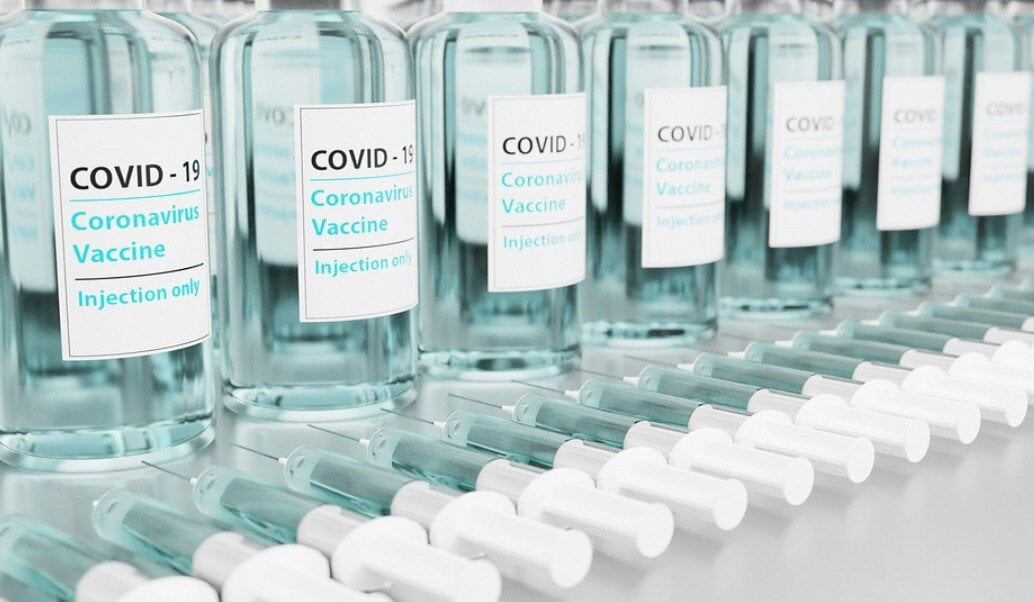The development of the COVID19 vaccines is a significant achievement in the global efforts to end the pandemic.
Presumably, many people know very little about these vaccines, and you may be one of them. This article will help you to understand better about them.
One of the notable aspects of the COVID19 vaccines is that they were developed in record time. Due to the substantial investment in research by global corporations and dedicated efforts of scientists, the vaccines got developed in such a short time.
In addition to the COVID-19 vaccines in use, there are more than 200 vaccine candidates in different stages of development. And many of them are in Phase III clinical trials, which is the final step before approval of a vaccine.
With the availability of multiple vaccines, you might tend to think which vaccine might work for you. In this context, you need to know that all the existing vaccines are WHO-approved, and they showed high efficacy in protecting people against COVID19. You can choose any of the available vaccines.
The Working Mechanism of COVID19 Vaccines
Vaccines teach the human body how to fight off diseases by empowering the immune system to respond to the disease-causing agent.
They, in a way, mimic an infectious agent, such as viruses, bacteria, or other microorganisms, which cause disease.
Vaccines introduce a weakened form of an infectious agent to enable the immune system to build its memory. So, the immune system can recognize and fight it before it makes the person ill.
But all COVID19 vaccines do not work in that way. Most of the vaccines work a bit differently. They are based on messenger RNA or mRNA technology.
The vaccines do not introduce antigens; instead, they give the human body a genetic code to empower the immune system to produce the antigen by itself.
Antigens are substances that enable the immune system to produce antibodies.
mRNA does not contain any live virus and does not interfere with human DNA.
These vaccines require freezing temperature environments to remain potent. So, healthcare facilities storing them should invest in an ultra-low temperature freezer to effectively store the vaccines.
When Should You Not Receive COVID19 Vaccine?
You should speak to a doctor if you have any questions about whether or not you should take a COVID19 vaccine.
According to the recommendations in place, you should not take a COVID19 vaccine if you have the following health conditions to avoid any possible side effects:
- A history of severe allergic reactions to any ingredients of a COVID19 vaccine
- Sick or showing COVID19 symptoms
People who recover from COVID19 develop some natural immunity to the Coronavirus, but it is not yet known how long the immunity will last. So, get yourself vaccinated even if you were infected with the virus.
Should Breastfeeding Mothers Take the Vaccine?
There is not yet full information regarding whether breastfeeding mothers can take the COVID19 vaccine. Researchers are currently about it.
But, the World Health Organization advises that if such a woman is part of a priority group for vaccinations, such as health workers. She can continue breastfeeding after vaccination, which can also protect the child from the infection.
Should Pregnant Women Take the Vaccine?
Research is going on to discover if there can be any side effects in pregnant women after the COVID19 vaccination.
Although pregnancy puts women at higher risk of severe illness, COVID19 is not yet known to increase such risks.
But, there is also no reason to believe that COVID19 vaccination will negatively impact pregnant women. So, pregnant women at higher risk of exposure to COVID19, such as health workers, should get themselves vaccinated after consulting with a doctor.
Besides, there has been false information that the vaccine affects fertility in women or men doing the rounds in social media. Do not believe in the information as there is no such evidence.
If you are currently trying to become pregnant, take the vaccine and do not need to avoid pregnancy after the vaccination.
Should Your Child Take COVID19 Vaccine?
Children have different immune systems than adults. And their immune systems change with their age. COVID19 vaccines are not recommended for anyone under the age of 16-18 years. As children were not included during the initial trials for COVID19 vaccines, there is no data on vaccines’ safety or efficacy below the age of 16. With research going on, the data regarding the safety of the vaccines in children will eventually come out.
What is COVAX?
All countries need to make the vaccines available to protect their citizens against Coronavirus. COVAX is part of a global initiative to accelerate COVID19 vaccines’ production and guarantee equitable access around the world.
The COVAX facility comprises 190 countries and accounts for over 90 percent of the world’s population. UNICEF is taking the initiative to procure and supply COVID19 vaccines on behalf of COVAX.
Does COVID19 Vaccines Affect the DNA?
The answer is in the negative. The vaccines cannot affect or interact with your DNA. So, you can put your worries to rest. The mechanism of working of the vaccines does not involve any interactions with DNA.
mRNA teaches the body cells how to make a protein, which initiates an immune response inside the body. The response produces antibodies that protect the human body against Coronavirus.
mRNA remains inside the cell for about 72 hours before breaking down. It does not enter into the nucleus of the cell, where DNA stays.
It is not yet clear whether the existing COVID19 vaccines can protect people against the new Coronavirus variants. But, WHO says that the approved vaccines can provide some protection against new Coronavirus variants.
Researchers are studying the behavior of the new variants and the effectiveness of COVID-19 vaccines on them.
Suppose researchers find any inadequacy in the effectiveness of the vaccines against the new variants. In that case, scientists can subsequently change the composition of the vaccines to protect people against the new variants.
Conclusion
The need of the hour is to get vaccinated against Coronavirus. But, there has also been much misleading information about vaccines on social media. Do not believe those, and get verified facts from the local health authority or international bodies, like WHO, UNICEF, etc.








Thanks for sharing excellent informations. Your web-site is very cool. I am impressed by the details that you have on this site. It reveals how nicely you understand this subject. Bookmarked this web page, will come back for extra articles. You, my pal, ROCK! I found just the information I already searched all over the place and simply could not come across. What a great web site.